Introduction
What Not To Feed Rabbits: Properly caring for your beloved rabbits involves more than just providing them with a cozy hutch and plenty of fresh hay. Just like any other animals, rabbits have specific dietary needs that must be met to maintain their health and happiness. While there are numerous foods that can contribute positively to their nutrition, it’s equally important to be aware of the rabbit foods that can be detrimental to their well-being. In this comprehensive guide, we’ll delve into the world of rabbit nutrition and highlight the items that should never find their way into your furry friends’ meals.
Rabbits are herbivores, primarily relying on a diet of hay, fresh vegetables, and a controlled amount of pellets. However, their delicate digestive systems can be easily disrupted by certain foods that might seem harmless to humans. It’s essential to remember that not all fruits, vegetables, or treats are suitable for rabbits, and some can even lead to severe health issues or toxicity. From common household foods to garden plants, there’s a wide range of items that fall into the “do not feed” category.
By understanding the importance of avoiding these forbidden foods, you can prevent potential health problems and ensure that your rabbits lead a joyful and comfortable life. This guide will equip you with the knowledge needed to make informed choices about your pets’ diet, allowing you to create a safe and nourishing environment that promotes their overall well-being. Let’s explore the world of rabbit nutrition and uncover the foods that should never make it onto their plates.
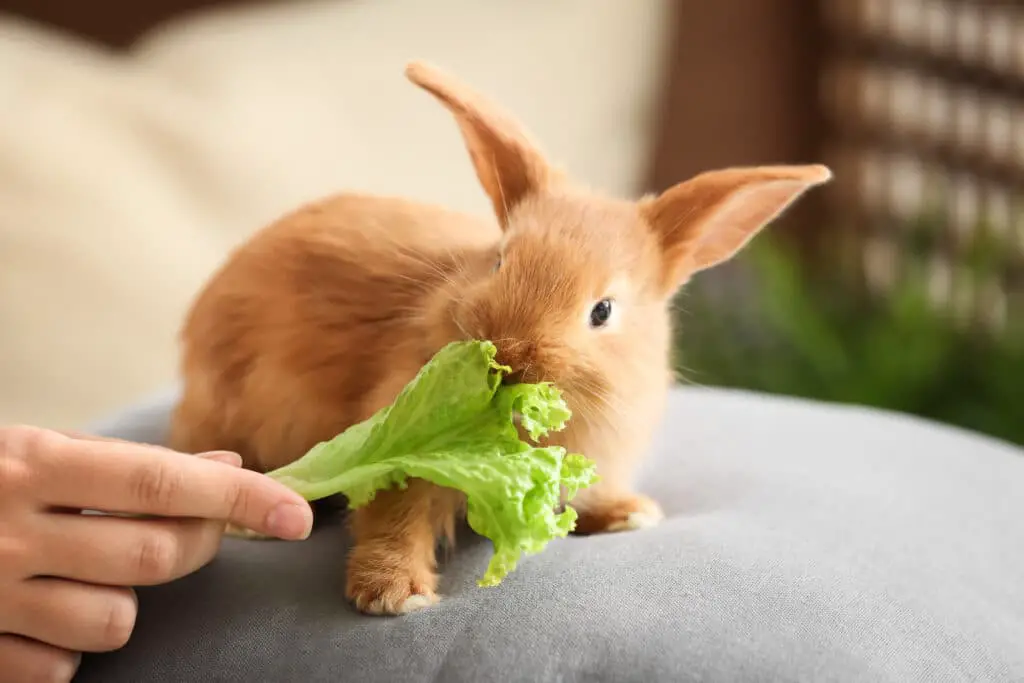
What vegetables are bad for rabbits?
What can rabbits not eat? These foods are poisonous for your rabbit and could make her ill: Potatoes, daffodils, tulips, rhubarb, lillies, mushrooms, avocado, broad beans, sweet peas, buttercup, kidney beans, jasmine, foxglove and iceberg lettuce.
Cruciferous Vegetables
Cruciferous vegetables such as cabbage, kale, broccoli, cauliflower, and Brussels sprouts contain compounds that can lead to gas and bloating in rabbits’ sensitive digestive systems. These vegetables can be difficult for rabbits to digest properly, resulting in discomfort and potential health issues. It’s best to limit or avoid these vegetables altogether.
High-Starch Vegetables
Vegetables with high starch content, such as potatoes and corn, should be avoided in a rabbit’s diet. Starchy foods can upset the delicate balance of a rabbit’s gut flora, leading to digestive problems. Additionally, the high carbohydrate content in these vegetables can contribute to obesity, which is a common health concern in pet rabbits.
Nightshade Vegetables
Nightshade vegetables like tomatoes, peppers (bell peppers, chili peppers, etc.), and eggplants contain a substance called solanine. Solanine is toxic to rabbits and can lead to gastrointestinal issues, lethargy, and even more severe complications. These vegetables should be kept out of your rabbit’s diet to ensure their well-being.
Onions and Garlic
Onions and garlic belong to the Allium family and are toxic to rabbits. They contain compounds that can cause damage to red blood cells and lead to anemia. Even small amounts of these vegetables can be harmful, so it’s crucial to avoid them entirely.
Rhubarb
Rhubarb contains oxalates, which can bind to calcium and lead to the formation of kidney stones in rabbits. Ingesting rhubarb can result in serious urinary tract issues, making it important to keep this vegetable far away from your rabbit’s diet.
Iceberg Lettuce
Iceberg lettuce is low in nutritional value and contains a high water content. While it may seem harmless, excessive consumption of iceberg lettuce can cause diarrhea in rabbits due to its lack of fiber and nutrients. Opt for more nutrient-rich and safe leafy greens like romaine lettuce or leafy herbs.
Are potatoes poisonous to rabbits?
Although potatoes won’t necessarily poison rabbits, this human-favorite vegetable isn’t ideal for them. Potatoes are high in carbohydrates and starch, both of which can cause issues for your bunny’s digestive system.
Potatoes and Their Toxic Components
Potatoes belong to the nightshade family, which includes plants that contain harmful compounds known as glycoalkaloids. One such glycoalkaloid is solanine, which acts as a natural defense mechanism for the potato plant against pests and predators. Solanine is toxic to both humans and animals, including rabbits, and can lead to a range of health problems when ingested.
Risks to Rabbits
Digestive Distress: Potatoes contain high levels of starch, which can be difficult for rabbits to digest properly. The rabbit’s delicate digestive system is optimized for fibrous plant material, and the starch in potatoes can disrupt the natural balance of their gut flora, leading to digestive discomfort, bloating, and potentially severe gastrointestinal issues.
Toxicity: The presence of solanine in potatoes can be extremely harmful to rabbits. Ingesting even small amounts of solanine can lead to symptoms such as drooling, lethargy, tremors, difficulty breathing, and in severe cases, it can be fatal. Since rabbits have smaller bodies and more sensitive metabolisms, they are more susceptible to the toxic effects of solanine.
Impact on Nutritional Balance: While potatoes do offer some nutritional benefits, such as vitamins and minerals, they are not an ideal source of nutrients for rabbits. Rabbits require a diet high in fiber, and potatoes lack the necessary fiber content. Feeding potatoes to rabbits can result in an unbalanced diet and potential deficiencies over time.
Is milk bad for rabbits?
Can rabbits drink milk? You should not give rabbits milk to drink. Adult rabbits are lactose intolerant and milk products are bad for the rabbit’s digestive system. Baby rabbits should also not have cow’s milk because it is very different from the milk they get from their mothers.
The Rabbit Digestive System
Rabbits are herbivores with digestive systems designed to process plant-based foods. Their digestive tracts are optimized for breaking down fibrous materials found in leaves, grasses, and vegetables. Unlike humans and certain other animals, rabbits lack the enzymes necessary to digest lactose – the sugar found in milk – effectively.
Lactose Intolerance in Rabbits
Lactose intolerance occurs when an individual lacks the enzyme lactase, which is needed to break down lactose into easily digestible components. Rabbits, by nature, do not produce enough lactase to process lactose properly. When lactose-intolerant animals, including rabbits, consume dairy products, they can experience various digestive problems, such as:
Upset Stomach: Consuming milk and other dairy products can lead to an upset stomach in rabbits, causing symptoms like diarrhea, bloating, gas, and discomfort.
Gastrointestinal Distress: The undigested lactose in a rabbit’s digestive system can ferment in the gut, leading to excessive gas production and potentially causing severe gastrointestinal distress.
Imbalance of Gut Flora: The introduction of dairy products to a rabbit’s diet can disrupt the balance of beneficial bacteria in their gut, affecting their overall digestive health.
Potential Health Risks
Feeding rabbits milk or dairy products can lead to immediate digestive problems, as well as long-term health risks. Continuous consumption of dairy products can result in chronic gastrointestinal issues, dehydration due to diarrhea, and malnutrition due to the disruption of nutrient absorption.
What is a rabbit’s favorite food?
A rabbit’s favorite food should be hay, though you may have to take steps to ensure that your rabbit is eating enough before adding in other foods that your rabbit loves. Hay should make up at least 80% of your rabbit’s diet, then it’s off to the races with fresh veggies and other treats!
Leafy Greens
Leafy greens are a staple in a rabbit’s diet and often rank high on their list of favorites. Varieties like romaine lettuce, kale, spinach, and parsley are not only packed with nutrients but also provide rabbits with the satisfaction of munching on something fresh and vibrant. The high moisture content of these greens can also contribute to their hydration.
Fresh Herbs
Herbs like cilantro, dill, basil, and mint are aromatic and flavorful additions that many rabbits adore. These herbs can add diversity to their diet and stimulate their senses, making mealtime an enjoyable experience.
Carrots
Carrots are iconic rabbit treats and are often associated with these furry companions. While carrots are high in sugar and should be given in moderation, they can be a delightful occasional snack that rabbits truly savor.
Apples
Apples, when given in small, bite-sized pieces and without seeds, can be a sweet treat that rabbits enjoy. The natural sweetness and crunchiness of apples can make them a favorite choice among rabbits.
Berries
Strawberries, blueberries, and raspberries are not only rich in antioxidants but also provide a burst of flavor that rabbits seem to appreciate. These can be given as occasional treats to add some variety to their diet.
Papaya
Papaya contains an enzyme called papain, which is known to aid in digestion. Some rabbits show a fondness for the taste of papaya, and it can be a healthy and enjoyable treat when given in small quantities.
Dandelion Leaves
Fresh dandelion leaves are not only safe for rabbits but are also enjoyed by many. They provide an excellent source of fiber and nutrients, making them a great addition to a rabbit’s diet.
Broccoli Leaves and Stems
While caution should be exercised with feeding cruciferous vegetables like broccoli florets, many rabbits enjoy the leaves and stems. These parts are less gassy and can be a tasty and nutritious addition.
Did rabbit can eat tomato?
Can rabbits eat tomatoes as an occasional treat? Yes, but there are a couple things you should know first. Tomatoes do have some health benefits (they’re a great source of vitamins A and C) — but they’re also high in sugar. As a result, as with all fruits and vegetables, a small amount is key.
Tomatoes: A Nutritional Overview
Tomatoes are rich in vitamins and minerals, particularly vitamin C, vitamin A, and potassium. They also contain antioxidants such as lycopene, which is believed to have various health benefits for humans. However, the nutrient profile that makes tomatoes valuable for humans doesn’t necessarily translate directly to rabbits.
Rabbits and Tomatoes: The Concerns
While small amounts of ripe tomato fruit might not be acutely toxic to rabbits, there are several reasons why caution should be exercised when considering adding tomatoes to a rabbit’s diet:
Lycopene Content: Lycopene, while beneficial to humans, might not hold the same advantages for rabbits. Additionally, the presence of lycopene and other compounds could be challenging for rabbits’ digestive systems to handle.
High Water Content: Tomatoes have a high water content, and excessive consumption of watery foods can disrupt the delicate balance of a rabbit’s gastrointestinal system, potentially leading to digestive problems.
Acidity: Tomatoes are slightly acidic, which can be problematic for rabbits’ sensitive stomachs. High acidity levels can lead to upset stomach, diarrhea, or other gastrointestinal issues.
Plant Components: The plant parts of the tomato plant, including leaves and stems, contain a compound called tomatine, which can be toxic to rabbits. Even though the ripe fruit contains lower levels of tomatine, it’s safer to avoid feeding any part of the tomato plant to rabbits.
Moderation and Precautions
If you decide to introduce small amounts of ripe, red tomato fruit to your rabbit’s diet as an occasional treat, consider the following precautions:
Portion Size: Limit the portion size to a small, bite-sized piece. This minimizes the risk of any adverse reactions.
Remove Seeds and Skin: Before offering tomato to your rabbit, ensure that all seeds and skin are removed. The seeds contain compounds that could be harmful to rabbits.
Observe for Reactions: After introducing tomato, closely observe your rabbit for any signs of digestive distress, such as changes in stool, lethargy, or changes in behavior.
What is the best rabbit food?
A quantity of herbs and vegetables that amounts to about the size of your rabbit’s head, per day. Think natural – good foods are spinach, kale, watercress, broccoli, celery and dandelion leaves. Rabbits also enjoy munching on fresh herbs such as mint, parsley, dill and thyme.
High-Quality Hay: The Foundation of a Rabbit’s Diet
Hay is the cornerstone of a rabbit’s diet. It provides the essential fiber that keeps their digestive system healthy and their teeth well-maintained. The best hay for rabbits is fresh, leafy, and free of dust or mold. Timothy hay is a popular choice, as it’s rich in fiber and promotes dental health. Other options like orchard grass or meadow hay can also be suitable.
Fresh Vegetables: A Nutrient Boost
Fresh vegetables play a vital role in your rabbit’s diet by providing essential vitamins and minerals. Some rabbit-friendly vegetables include romaine lettuce, spinach, kale (in moderation), carrots, bell peppers, and zucchini. Aim to provide a variety of vegetables to ensure a well-rounded nutrient intake.
Limited Pellets: Nutrient-Rich and Balanced
High-quality rabbit pellets can serve as a supplement to hay and vegetables. Look for pellets that are specifically formulated for rabbits and avoid those that contain added sugars, artificial colors, or seeds. Pellets should be given in moderation to prevent overeating, which can lead to obesity.
Fresh Water: Hydration is Key
Ensure that your rabbit has constant access to fresh, clean water. Hydration is crucial for their overall health and digestion.
Occasional Treats: Use Caution
Treats should be given sparingly and should consist of safe rabbit-friendly options. Fresh fruits like apples, strawberries, and blueberries can be offered as occasional treats. Remember that treats should make up only a small portion of your rabbit’s diet.
What smells do rabbits hate?
Additionally, the strong odors of blood meal, garlic, onions, mint, thyme, sage, rosemary, lavender, daffodils, and marigolds act as natural repellents for rabbits. Planting these species in our gardens or using sprays that contain their scents can help protect our plants from rabbit damage.
Strong Spices and Herbs
Rabbits have a sensitive olfactory system, and strong, pungent scents from spices like garlic and onion, as well as some potent herbs, can be off-putting to them. These scents can overwhelm their senses and make them less inclined to explore areas with these odors.
Predatory Scents
Rabbits are naturally prey animals, and they are attuned to the scents of predators. Substances such as predator urine or scents from animals like dogs or cats can trigger a sense of danger in rabbits, causing them to avoid those areas.
Strong Chemical Odors
Rabbits are generally sensitive to strong chemical smells, which can come from cleaning products, perfumes, or other artificial scents. These odors can be overpowering and unsettling to them.
Bitter or Unpleasant Smells
Rabbits have a tendency to avoid bitter or unpleasant smells that might signal the presence of something harmful or inedible. This natural instinct helps them avoid potential sources of danger in the wild.
Fruits and Vegetables with Strong Odors
While rabbits do enjoy a variety of fruits and vegetables, some with strong odors like citrus fruits or very aromatic herbs might not be as appealing to them. These scents can be overwhelming and deter them from consuming those foods.
Smoke and Fire Smells
The smell of smoke or fire can be associated with danger for rabbits, as it’s often indicative of a threat in the wild. These scents can cause them to become more cautious and seek shelter.
Is chapati good for rabbits?
You should NOT give your rabbit rice or roti or any wheat based item like bread or pasta. Even raw fruits should only be given in small quantities. Rabbits can enjoy a variety of fresh leafy vegetables such as coriander, spinach, carrot tops or lettuce and also hay.
Chapati’s Nutritional Composition
Chapati is primarily made from whole wheat flour, water, and sometimes a touch of salt. It’s low in fat and can be a source of carbohydrates and dietary fiber. While humans often find it a wholesome addition to their meals, rabbits have distinct dietary requirements that need to be considered.
Rabbit Diet Basics
Rabbits are herbivores with digestive systems adapted for a diet rich in fiber and low in carbohydrates. Their primary dietary components should consist of high-quality hay, fresh vegetables, and a limited amount of pellets. These foods provide the necessary nutrients for optimal health, dental care, and digestion.
Is Chapati Suitable for Rabbits?
Chapati, despite its simple ingredients, is not an ideal food for rabbits for several reasons:
Carbohydrate Content: Rabbits are not well-suited to a high-carbohydrate diet. Chapati, being primarily composed of wheat flour, contains carbohydrates that rabbits might not efficiently process. An excess of carbohydrates in their diet can lead to digestive disturbances and other health issues.
Lack of Fiber: Fiber is crucial for a rabbit’s digestive health and dental care. Chapati lacks the necessary fiber content that rabbits require to maintain their gut health and ensure proper dental wear.
Nutrient Imbalance: While chapati might offer some nutrients, it doesn’t provide the balanced nutrition that a rabbit needs. A diet consisting primarily of chapati could result in nutritional deficiencies over time.
Digestive Sensitivity: Rabbits have sensitive digestive systems, and introducing new foods too quickly can lead to digestive upset, including diarrhea and bloating.
Rabbit-Friendly Alternatives
To provide the best care for your pet rabbit, focus on their specific dietary needs:
High-Quality Hay: Fresh hay, such as timothy hay, should form the majority of your rabbit’s diet. It provides essential fiber and supports proper digestion.
Fresh Vegetables: Leafy greens like romaine lettuce, spinach, and parsley are valuable sources of vitamins and minerals for rabbits.
Limited Pellets: High-quality rabbit pellets can supplement their diet, but should be given in moderation.
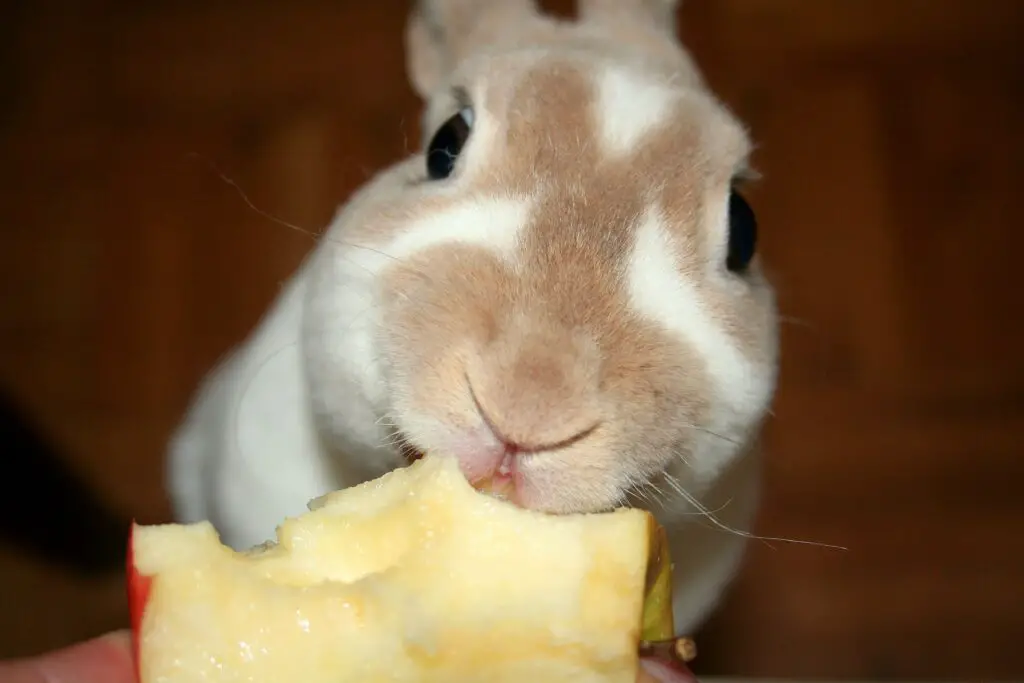
Conclusion
In the intricate balance of caring for rabbits, proper nutrition plays a pivotal role in their vitality and longevity. Recognizing the foods that should be avoided is an essential component of responsible rabbit ownership. As we’ve explored the array of items that can pose a threat to these gentle creatures, it becomes clear that a well-informed caregiver is the cornerstone of a rabbit’s well-being.
From the seemingly innocuous to the outright hazardous, the list of foods that should not be fed to rabbits serves as a cautionary reminder. By refraining from offering them items that could disrupt their delicate digestive systems, cause toxicity, or lead to severe health complications, we take on the responsibility of safeguarding their health and comfort.
Adhering to the knowledge outlined in this guide empowers us to make informed decisions about our rabbits’ diet. While it might be tempting to share a morsel from our own plate or offer a treat, it’s crucial to prioritize their specific dietary needs over momentary indulgence. By doing so, we provide our rabbits with the opportunity to flourish, maintaining their energetic spirit and inquisitive nature.
The journey of rabbit care encompasses not only affection and shelter but also a deep understanding of their nutritional requirements. By steering clear of the “no-go” foods and embracing a diet that aligns with their natural needs, we contribute to a vibrant, fulfilling life for our cherished furry companions.

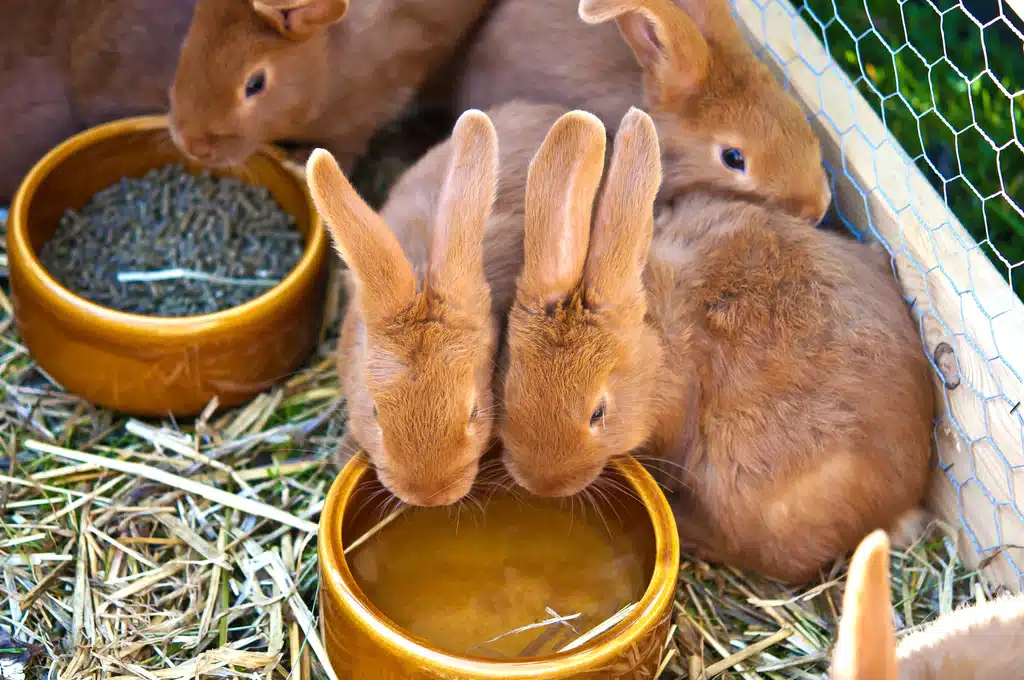
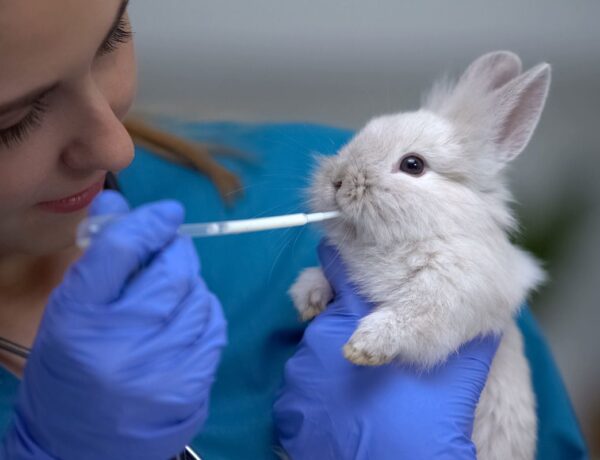

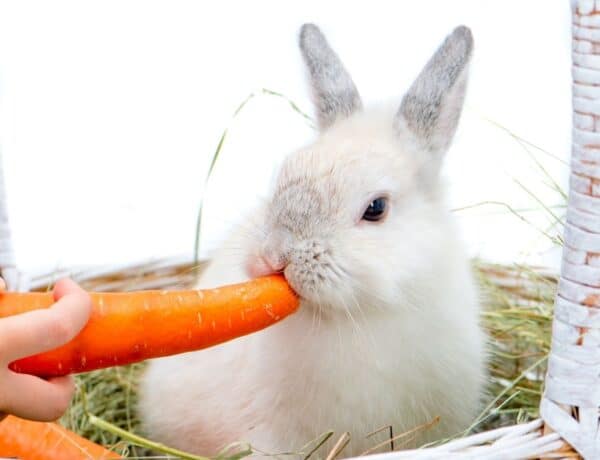
No Comments